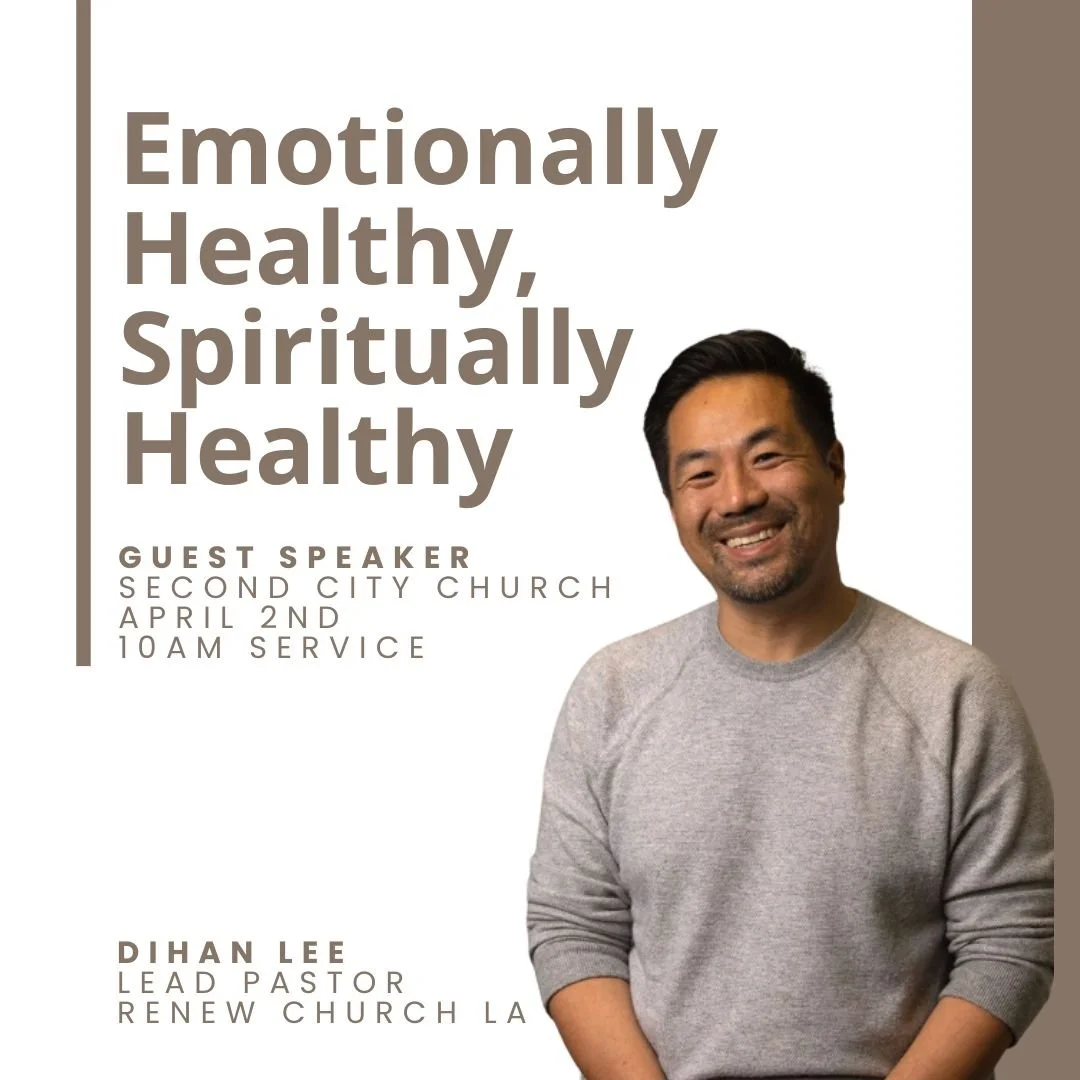Be Filled : Part 1
Pastor Rollan Fisher
The series title will be called “Be Filled”. It will focus on us cultivating our relationship with the Holy Spirit in light of the resurrection, the abundant life Jesus has called us to and the work he has commissioned us to do.
Focus: Being filled with the Holy Spirit is a daily goal, not a one time event.
Power
Purity
Proclamation
Power
Being filled with the Holy Spirit provides power to be a witness for the resurrected Jesus.
Acts 1:1-8 ESV
“In the first book, O Theophilus, I have dealt with all that Jesus began to do and teach, until the day when he was taken up, after he had given commands through the Holy Spirit to the apostles whom he had chosen. He presented himself alive to them after his suffering by many proofs, appearing to them during forty days and speaking about the kingdom of God. And while staying with them he ordered them not to depart from Jerusalem, but to wait for the promise of the Father, which, he said, "you heard from me; for John baptized with water, but you will be baptized with the Holy Spirit not many days from now." So when they had come together, they asked him, "Lord, will you at this time restore the kingdom to Israel?" He said to them, "It is not for you to know times or seasons that the Father has fixed by his own authority. But you will receive power when the Holy Spirit has come upon you, and you will be my witnesses in Jerusalem and in all Judea and Samaria, and to the end of the earth."”
You will receive power when the Holy Spirit comes upon you.
Power can come in the form of:
Boldness
Gifts of the Spirit
Strength to minister
Acts 4:23-31 ESV
“When they were released, they went to their friends and reported what the chief priests and the elders had said to them. And when they heard it, they lifted their voices together to God and said, "Sovereign Lord, who made the heaven and the earth and the sea and everything in them, who through the mouth of our father David, your servant, said by the Holy Spirit, "'Why did the Gentiles rage, and the peoples plot in vain? The kings of the earth set themselves, and the rulers were gathered together, against the Lord and against his Anointed'— for truly in this city there were gathered together against your holy servant Jesus, whom you anointed, both Herod and Pontius Pilate, along with the Gentiles and the peoples of Israel, to do whatever your hand and your plan had predestined to take place. And now, Lord, look upon their threats and grant to your servants to continue to speak your word with all boldness, while you stretch out your hand to heal, and signs and wonders are performed through the name of your holy servant Jesus." And when they had prayed, the place in which they were gathered together was shaken, and they were all filled with the Holy Spirit and continued to speak the word of God with boldness.”
1 Corinthians 12:1-3 ESV
“Now concerning spiritual gifts, brothers, I do not want you to be uninformed. You know that when you were pagans you were led astray to mute idols, however you were led. Therefore I want you to understand that no one speaking in the Spirit of God ever says "Jesus is accursed!" and no one can say "Jesus is Lord" except in the Holy Spirit.”
1 Corinthians 12:27-31 ESV
“Now you are the body of Christ and individually members of it. And God has appointed in the church first apostles, second prophets, third teachers, then miracles, then gifts of healing, helping, administrating, and various kinds of tongues. Are all apostles? Are all prophets? Are all teachers? Do all work miracles? Do all possess gifts of healing? Do all speak with tongues? Do all interpret? But earnestly desire the higher gifts. And I will show you a still more excellent way.”
1 Corinthians 14:1 ESV
“Pursue love, and earnestly desire the spiritual gifts, especially that you may prophesy.”
1 Peter 4:10-11 ESV
“As each has received a gift, use it to serve one another, as good stewards of God's varied grace: whoever speaks, as one who speaks oracles of God; whoever serves, as one who serves by the strength that God supplies—in order that in everything God may be glorified through Jesus Christ. To him belong glory and dominion forever and ever. Amen.”
When was the last time you operated in the power of God?
The purpose of being filled with the Holy Spirit is that we might be power filled witnesses of the resurrected Christ, both in word and in deed.
Purity
Being filled with the Holy Spirit enables us to grow in life-giving fellowship with God and the rest of his body.
Ephesians 5:15-21 ESV
“Look carefully then how you walk, not as unwise but as wise, making the best use of the time, because the days are evil. Therefore do not be foolish, but understand what the will of the Lord is. And do not get drunk with wine, for that is debauchery, but be filled with the Spirit, addressing one another in psalms and hymns and spiritual songs, singing and making melody to the Lord with your heart, giving thanks always and for everything to God the Father in the name of our Lord Jesus Christ, submitting to one another out of reverence for Christ.”
The point of the Scriptural examples is not only to marvel at what has happened, but to hunger and thirst for that which we need.
One commentator put it this way:
The Amplified Version does a decent job with the imperative, present, passive verb for “filled”
being imperative, God commands us to be filled;
being present tense, it is to be repeated, it is an ongoing responsibility; and
being passive, we are to yield to the influence of the Holy Spirit.
The sanctifying work of God in a believer’s life is the result of continually feeding on the Word, doing what it says and having prayerful/worshipful fellowship with God that we might be continually filled with the Holy Spirit.
Matthew 3:11-12 ESV
“"I baptize you with water for repentance, but he who is coming after me is mightier than I, whose sandals I am not worthy to carry. He will baptize you with the Holy Spirit and fire. His winnowing fork is in his hand, and he will clear his threshing floor and gather his wheat into the barn, but the chaff he will burn with unquenchable fire."”
“D L Moody was once asked why he urged Christians to be filled constantly with the Holy Spirit. “Well,” he said, “I need a continual infilling because I leak!” He pointed to a water tank which had sprung a leak. “I’m like that!” he said. It’s a fact that living in this sinful world we do need to be replenished by the Spirit.”
-Owen Bourgaize
Proclamation
Being filled with the Spirit enables us to love and motivates us to consistently proclaim Jesus.
Acts 4:8-13 ESV
“Then Peter, filled with the Holy Spirit, said to them, "Rulers of the people and elders, if we are being examined today concerning a good deed done to a crippled man, by what means this man has been healed, let it be known to all of you and to all the people of Israel that by the name of Jesus Christ of Nazareth, whom you crucified, whom God raised from the dead—by him this man is standing before you well. This Jesus is the stone that was rejected by you, the builders, which has become the cornerstone. And there is salvation in no one else, for there is no other name under heaven given among men by which we must be saved." Now when they saw the boldness of Peter and John, and perceived that they were uneducated, common men, they were astonished. And they recognized that they had been with Jesus.”
Many people do not want to be a witness for Christ because they believe it is not their right to tell someone else what to believe or think.
“The problem is that tolerant has changed its meaning. It used to mean 'I may disagree with you completely, but I will treat you with respect. Today, tolerant means - 'you must approve of everything I do.' There's a difference between tolerance and approval. Jesus accepted everyone no matter who they were. He doesn't approve of everything I do, or you do, or anybody else does either. You can be accepting without being approving.”
-Rick Warren
That is why Jesus said to be a witness, of what you’ve seen of him, heard and come to know.
It is the Holy Spirit’s job as we pray and proclaim Jesus to draw people to himself and give them revelation of the truth (Matthew 16:13-20 ; John 6:44; 16:8).
There is no way around it - people come to saving relationship with Jesus as we share the good news of his life, identity, miracles, death, burial and resurrection (Romans 10:8-17).
Bold love, not obnoxious behavior, is what is necessary to be a witness of Christ's resurrection in a world that stands opposed to his message and life.
“Our culture has accepted two huge lies. The first is that if you disagree with someone’s lifestyle, you must fear or hate them. The second is that to love someone means you agree with everything they believe or do. Both are nonsense. You don’t have to compromise convictions to be compassionate.”
-Rick Warren
Second City Church - Pastor Rollan Fisher






















